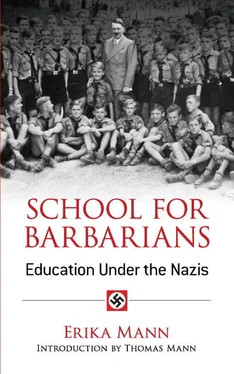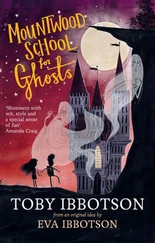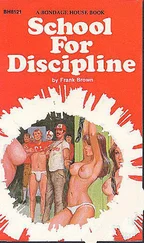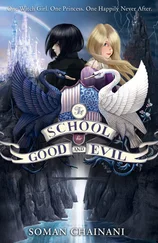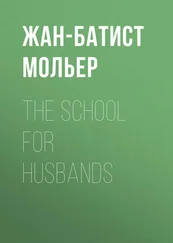“You weren’t there.” René speaks as if anybody who had not seen it knows nothing at all about life, and ought never to open his mouth again. “It was a very small hole,” he says, “and there was hardly any blood, just a little at the eye. We didn’t think it was anything. But Gert was dead by that time.”
“And guess what happened to that leader!” Bruce challenges me. “He was just transferred to another group! And what do you suppose they did to Gert’s father? They locked him up, because he complained, they stuck him in one of those concentration camps!”
“The papers said it was an accident: ‘Our dear son met with an accident in the service of our fatherland.’ ” He puts the rusted knife on the table. We all look at it, at the white strip of cloth on the handle, with its red swastika.
“D’you keep that because it’s Hitler’s junk?” Till asks, with his sideward look.
“Because it’s my friend’s; and I’m going to keep it forever.” Till is satisfied with that; he puts the last marshmallow slowly into his mouth.
The skyscrapers stand against a tall, pale sky. I want them to think of something else, and I propose the movies. Snow White is around the corner. “It’s a German story,” I tell René, trying to answer his reproach about German books, “and you can see how American it is now.” But Bruce has seen it already; and Till is occupied, twirling the globe, tracing frontiers with his finger. “France, Switzerland, Germany, Austria,” he spells out.
“Austria,” repeats René. “You’ll have to buy a new one.”
“United States of America,” Till reads.
“Want to be Americans?” asks Bruce. Till travels around Mexico with his finger.
“Well, yes, I’d like to,” René answers, “but I can’t quite imagine it. After all, I’m still German — I suppose.”
Till pushes across the South Seas. “Sure I’m going to be an American!” Bruce welcomes him with a charming little bow and a smile of extraordinary nobility, as if he had the power to give citizenship. “We’ll be glad to have you!” he says.
“What do you mean, we ?” René asks, leaning on the window sill next to Bruce, half a head taller than the American boy, but slighter and less firm. “Who’s we? ”
“We Americans,” he says. “We, the people.”
“What about your government?”
“The government does what we want,” says Bruce. “If it doesn’t, out it goes!”
Till is delighted. But René looks a little startled at all this audacity. Bruce is going on, enjoying himself, declaiming:
“…Our government is here to serve us. We chose it ourselves, and we obey it because we think it’s right, and not because we’re afraid. It’s there to make us a happy, rich, and peaceful people. We don’t want anyone to attack us, but we don’t want war. And we won’t stand for injustice anywhere—” he checks himself, embarrassed, and modifies, “that is, too much injustice. So if I shoot you I get punished; but I couldn’t, anyhow, because there’s no night practice, and there aren’t any leaders, and besides I haven’t got a rifle.” René doesn’t smile. He accepts the assurance.
We’ll send “the family” a line before the boys leave. “ You write,” I tell them. My long, detailed report will be made later. Till writes in English, drawing in a confused mixture of German letters and the Latin ones he is learning here. When he finishes with “Much love, from your dear son, Till,” René sits down, and fifteen minutes of phonograph-playing passes. We listen to the records while he writes, and at last I read;
“Dearest Mama,
“Today was a fine day, I think I’ll get used to it here, but please come whenever you can. Everything here is very different, I can’t explain just how. We are learning a lot, not so much about world theory and less about war. I like school pretty well. I’m practically never afraid any more. I have a friend, that’s why I have to learn English fast now. It is dark outside already, you can see stars over the skyscrapers, but they are a little pale. Please come soon,
“to your son “René”
There is a sudden scene before Bruce has his turn. The armband has been lying beside the dagger on the table, and the American has put it on. He throws his arm up. “Heil Hitler!” he cries, at attention.
René goes dark, then very pale. “Stop it!” he shouts. “Take it off, please, Bruce, take that off!”
Bruce rips it off without a word, and sits down at the desk. René is apologizing for his violence. “I don’t know why, but I can’t look at it,” he says, asking forgiveness. “It looked like Gert, and suddenly that night practice, and the cry Heil Hitler, Heil Hitler! ” He is terribly pale; he trembles, terribly. “I won’t see another, I don’t want to see another swastika!” With a sharp movement, he reaches for the armband and tears it to shreds. For a moment, there is nothing but the sound of ripping.
“Now, now,” I say, from across the room, “really!”
But Till is at his side, and sweeping the bits happily into the waste-paper basket. Bruce goes back to his writing. Crossing to the desk, René, quieted, lays the dagger before him on the sheets of the finished letter. “Here, it’s yours!” he says gently.
Bruce looks at it without saying thank you; he looks at the knife as if it were extraordinarily beautiful, a delicate, rare, fragile thing.
“I know,” Till laughs, and says in his little chirping voice, with its high child’s twitter, “I know what you’re writing! Schnitzelbank, Heidelberg, auf Wiedersehen! ”
But Bruce is finished. Close to the curlicues of René’s childish signature, his name stands, and below it, in brackets, to explain to the mother who is so far away and waiting for the letter, and who cannot know what “Bruce” means: “René’s American friend, forever.”
DOVER PUBLICATIONS, INC.
MINEOLA, NEW YORK
Copyright © 1938 by Frido Mann
All rights reserved.
Bibliographical Note
This Dover edition, first published in 2014, is an unabridged republication of the work originally published by Modern Age Books, Inc., New York, in 1938.
International Standard Book Number
eISBN-13: 9780-4-867-8960-6
Manufactured in the United States by Courier Corporation
78100301 2014
www.doverpublications.com
One alteration of the figure should be made now for Austria. Tr.
Translator’s note: These shockingly bad verses, like the others, are translated on the level of the original.
